-
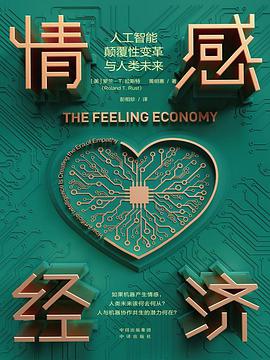
情感经济
人工智能全面进驻人类生活的几百年里,人类智能的世界发生了巨大的变化,生产、消费等各个环节都产生了新的特征。作者以人工智能的发展作为线索,梳理经济社会发展的进程。并以此为背景,引申出新的经济时代可能发生的工作性质、教育体系、女性地位、消费方式等的变化。
伴随着人工智能的发展,人类社会走过了体力经济时代,正在经历思维经济时代,并已经显露出情感经济的特征。在情感经济时代,随着机器被训练着开始“思考”,过去需要人类智能的许多任务现在都通过人工智能实现了自动化。然而,注重情感或情绪体验的工作却仍难以实现自动化,所以情感经济的本质就是强调“情商”和“同理心”。这一时期,人类工作中技术性的部分慢慢淡化,情感向的技能将进一步升级。
人类对于人工智能的开发仍在继续,伴随而来的担忧和争议也将一直存在。如果人工智能进一步产生情感,打破人类在创造力、共情力领域的“垄断优势”;如果机器全面压制人类智能的“奇点”真的到来……人类未来要去向何方,人机共生的伦理困境如何突破,都是不可逃避的问题。
-
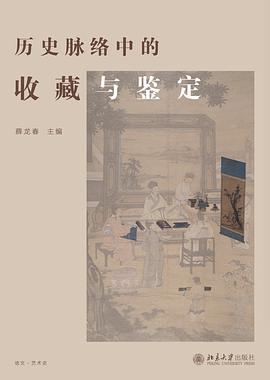
历史脉络中的收藏与鉴定
近年来,图像渐渐成为不同领域学者共同处理的材料,艺术品收藏与鉴定的历史研究也成为许多人共同关心的课题。收藏与鉴定,不仅涉及到具体艺术品的甄别、传播与交易,它的装潢、包装、买卖、运输等环节,也获得不同程度的关注。无论是一件作品的递藏,还是一部书画著录,无论是个体的藏家,还是一个时期的收藏全局,其脉络与意义都需置诸具体的历史情境中加以探求与解读。惟有如此,收藏活动才能与更广泛的历史发生联系。同时,除了提供“真品”,鉴定过程中发现的“伪作”,它产生的动机与知识结构,也是理解过往人心、经验与观念的有益材料。而鉴定与收藏的之间所形成的张力,还能发展出关于品味、价值观以及文化策略等方面的新议题。
2017 年 9 月,浙江大学文化遗产研究院、艺术与考古博物馆以及亚洲文明研究中心主办“中国艺术的收藏与鉴定”工作坊,本书收入工作坊的论文和讨论,以期深化中国艺术收藏与鉴定的历史研究。
-
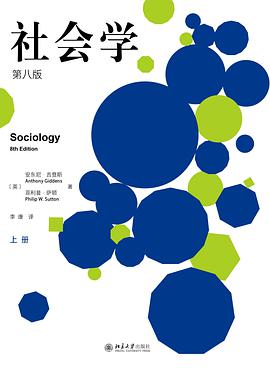
社会学(第八版)
《社会学》如今出至第八版,对于理解我们塑造的世界、我们所过的生活,依然是不可或缺的导引。
本书行文流畅,布局清晰,努力做到既智识严谨,又深入浅出,尤其强调互动,力求让读者倾心投入,保持兴奋,帮助他们领略社会学之思的持久价值。
第八版特色:
·紧扣社会学基本要义,即社会学的宗旨、研究方法与理论,构筑坚实基础;
·围绕社会生活核心话题,从性别、性相和个人生活,到贫困、全球化、传媒与政治,勾勒最新概观;
·针对社会学有关全球不平等、气候变化等当代世界关键议题的论述,遍举鲜活例证;
·牢牢把握全球社会学趋势,明确聚焦数字技术如何彻底改变传播、劳动与人际互动;
·保持教学特性,诸如“经典研究”“全球社会”图文框和“批判性思考”停靠点,以及各章末尾活动环节,邀请读者关注流行文化与原创研究论文,广采社会学洞见。
-
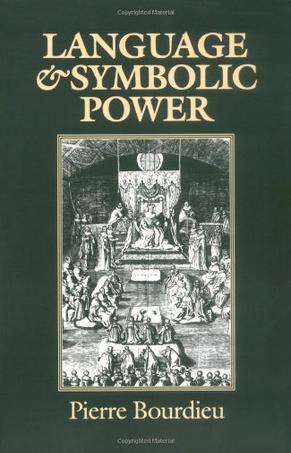
Language and Symbolic Power
This volume brings together Bourdieu's highly original writings on language and on the relations among language, power, and politics. Bourdieu develops a forceful critique of traditional approaches to language, including the linguistic theories of Saussure and Chomsky and the theory of speech-acts elaborated by Austin and others. He argues that language should he viewed not only as a means of communication but also as a medium of power through which individuals pursue their own interests and display their practical competence. Drawing on the concepts that are part of his distinctive theoretical approach. Bourdieu maintains that linguistic utterances or expressions can be understood as the product of the relation between a linguistic market" and it "linguistic habitus." When individuals use language in particular ways, they deploy their accumulated linguistic resources and implicitly adapt their words to the demands of the social held or market that is their audience. Hence every linguistic interaction, however personal or insignificant it may seem, hears the traces of the social structure that it both expresses and helps to reproduce. Bourdieu's account sheds fresh light on the ways in which linguistic usage varies according to considerations such as class and gender. It also opens up a new approach to the ways in which language is used in the domain of politics. For politics is, among other things, the arena in which words are deeds and the symbolic character of power is at stake. This volume, by one of the leading social thinkers in the world today, represents a major contribution to the study of language and power. It will be of interest to students throughout the social sciences and humanities, especially in sociology, politics, anthropology, linguistics, and literature. -
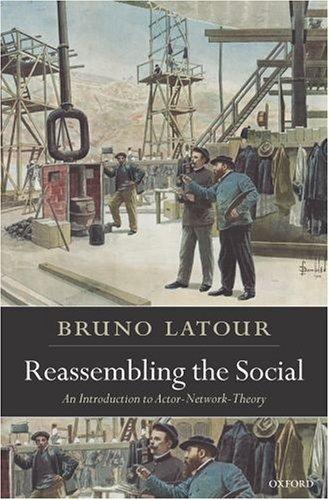
Reassembling the Social
Reassembling the Social is a fundamental challenge from one of the world's leading social theorists to how we understand society and the 'social'. Bruno Latour's contention is that the word 'social' as used by Social Scientists has become laden with assumptions to the point where it has become a misnomer. When the adjective is applied to a phenomenon, it is used to indicate a stabilized state of affairs, a bundle of ties that in due course may be used to account for another phenomenon. Latour also finds the word used as if it described a type of material, in a comparable way to an adjective such as 'wooden' or 'steely'. Rather than simply indicating what is already assembled together, it is now used in a way that makes assumptions about the nature of what is assembled. It has become a word that designates two distinct things: a process of assembling: and a type of material, distinct from others. Latour shows why 'the social' cannot be thought of as a kind of material or domain, and disputes attempts to provide a 'social explanation' of other states of affairs. While these attempts have been productive (and probably necessary) in the past, the very success of the social sciences mean that they are largely no longer so. At the present stage it is no longer possible to inspect the precise constituents entering the social domain. Latour returns to the original meaning of 'the social' to redefine the notion and allow it to trace connections again. It will then be possible to resume the traditional goal of the social sciences, but using more refined tools. Drawing on his extensive work examining the 'assemblages' of nature, Latour finds it necessary to scrutinize thoroughly the exact content of what is assembled under the umbrella of Society. This approach, a 'sociology of associations' has become known as Actor-Network-Theory, and this book is an essential introduction both for those seeking to understand Actor-Network-Theory, or the ideas of one of its most influential proponents. -
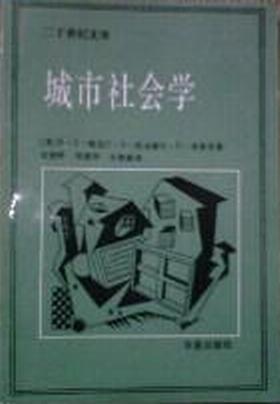
城市社会学